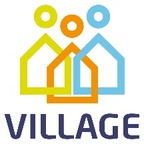‘How to raise the village to raise the child?’ Supporting children with mentally ill parents in Austria (short title: ‘village’)

Principal investigator: Jean Paul (Ludwig Boltzmann Society, Medical University Innsbruck)
Project leader at AIHTA (lead of work package ‘co-development’): Ingrid Zechmeister-Koss
Project team at AIHTA: Ingrid Zechmeister-Koss
Project partners: Melinda Goodyear (Monash University Melbourne); Annette Bauer (London School of Economics), Hanna Christiansen (Philipps University Marburg), Ingunn Olea Lund (Norwegian Institute of Public Health), Batool Fatima (Aga Khan University Karachi)
Duration: February 2018 – August 2022
Language: English and German
Background: Children of parents with a mental illness (COPMI) are more likely to experience negative long-term emotional difficulties. It is estimated that one in four children currently lives with a parent with mental illness worldwide, with substantial lifelong impacts for individuals, governments and the wider society.
In Austria only fragmented support for these children exits and generally little knowledge is available on effective and non-stigmatising support.
Aims of project: The project seeks to improve child wellbeing outcomes for children of parents with a mental illness through early identification and the enhancement of support networks around the child and their family in Austria. This will be achieved through the co-development, implementation and evaluation of two practice approaches concerned with the identification of COPMI, and with establishing child-focused support networks that are established from the ‘child's voice’ and on principles of collaborative care. The project is set up in the Austrian region of Tyrol over the period of four years. The research is focused on workforce development through improving current practice, as well as implementation science in developing an understanding of what works, for whom, under which conditions, and why (realist evaluation framework).
Methods: The project will be carried out through six work packages to scope, co-design, implement and evaluate the practice approaches. Work packages (WP) include:
1: The “Child‘s Voice”: linguistic microanalysis of interactions involving children, parents, and health professionals, as well as co-participation with children through roundtable discussion and child-friendly data collection are planned to understand and conceptualise the child perspective and experiences in this setting;
2: “Scoping”: focuses on the existing evidence, practice, and current state of collaboration and service provision in Austria to identify recommended approaches, gaps, barriers, and active ingredients; (eg, early identification, prevention, referral and support);
3: “Co-Development” of practice approaches to identify and support children; this will be done in a series of co-design workshops with key stakeholders and service providers in the field, developing logic models and key practice approaches;
4: “Implementation” of practice approaches based on implementation support strategies as outlined in the National Implementation Research Network (exploration, installation, pre-implementation) to support translation of the evidence informed approaches into practice;
5: “Evaluation”: formative (feasible, appropriate, and acceptable), process (intended implementation), outcome (cost-)effectiveness), and impact (ultimate goals) evaluation is planned following a realist approach;
6: “Dissemination” this WP will focus on the dissemination of results to reach a broad public audience of different stakeholders, researchers, and the families involved.
Time schedule/ milestones (in months): February 2018 to September 2018 (8 months):
- (systematic) literature reviews aiming at identifying ‚active ingredients’ of the practice approaches
- mapping of current situation in Tyrol (service provision, epidemiology etc.)
- Development of logic models
October 2018 to February 2019 (5 months):
- Developing the practice approaches using stakeholder workshops
April 2019 to February 2021 (23 months):
- Implementation (training und piloting) of the support programme
March 2018 to January 2022 (47 months):
- Programme evaluation (based on realist evaluation framework)















